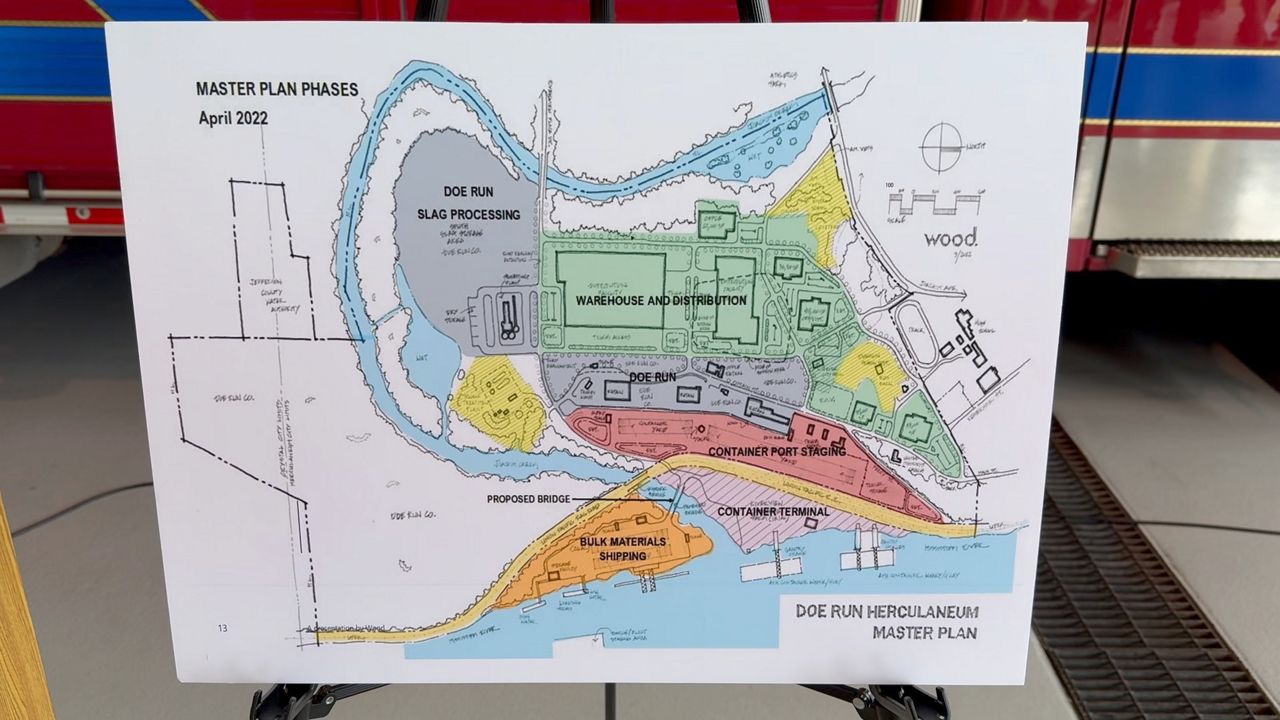HERCULANEUM, MO – Jefferson County Port Authority (JCPA) President Derrick Good announced the port authority closed on a $20 million purchase of the Riverview Commerce Park facility (RCP). The site, a river port, is located along the Mississippi River among 18-acres of land and it’s the first publicly owned terminal facility in Jefferson County.
In 2022, JCPA received $25 million in funding from the State of Missouri to support port development. That funding led to the acquisition and agreement with RCP.
“This facility and the port operations there are a key part to our regions economic growth,” said Good. “Over the years we’ve worked closely with local, regional, and state partners to explore the potential of ports in this county and expand what is here with our unique infrastructure.”
The port has direct rail access for train-transport. It’s a short two miles away from Interstate-55 and is only 35 miles south of St. Louis. It’s also below all the lock and dam systems, giving container vessels a direct shot to the Gulf of Mexico through New Orleans.
RCP’s port overhead conveyor system can handle 1,000 tons per hour. Last year, 1,000,000 tons were moved through the RCP facility. JCPA will outsource the operation of the port to RCP and they’ll share the revenues so they can reinvest in the port and county. Being owned by the county, federal and state funds are on the table to help grow the RCP facility, which may not have been available to the port when it was privately owned.
In 2021, the JCPA announced a project with American Patriot Holdings (APH) for a container on vessel project that would move imported and exported goods more efficiently in the mid-west via containers up and down the Mississippi River connecting to businesses around the world. Until completion, foreign and local business move product by tractor-trailers or train from the east and west coast. Good said according to a study, the farmers would save up to 60% of their transport costs on shipping to the far east.
JCPA told Spectrum News the APH has made great strides in the container on vessel project, recently acquired near $500 million to develop the New Orleans port.
Closer to home, the JCPA said in their press release, infrastructure upgrades including new roads “have all been designed and gone through final engineering. RFPs will be released in the near future for the planned roadway improvement and other infrastructure investments to improve accessibility, safety and traffic flow at points of entry and exit at the site.”
The improvements to infrastructure include:
- A new entryway to ease ingress and egress at the port facility
- A direct link from the bridge over Joachim Creek to the dock for industrial traffic
- A new Broadway Extension Road
- New sewer infrastructure
- Additional dock improvements
- New pavement
- New retaining wall
Good believes the sky is the limit for “endless opportunities for new industrial development” when the APH project is operational.
“Congratulations to our strategic Midwest partner Jefferson County Port Authority, on its recent land purchase announcement," a statement from APH reads. "JCPA’s port acquisition and its accompanying growth strategy provides the foundation for further development and added value to the State, County, Port and surrounding community. APCT looks forward to working closely with the JCPA to complete development of shared vision for the Midwest Integrated Logistic System.”
APH also noted they’re making progress on their ports in New Orleans and Memphis. They say studies have shown the "Container on Vessel" project will provide midwest shippers a more cost-efficient and reliable supply option with a “green” carbon footprint. Their vessels boast a speed three times as fast as conventional container barges and will carry all container types.





